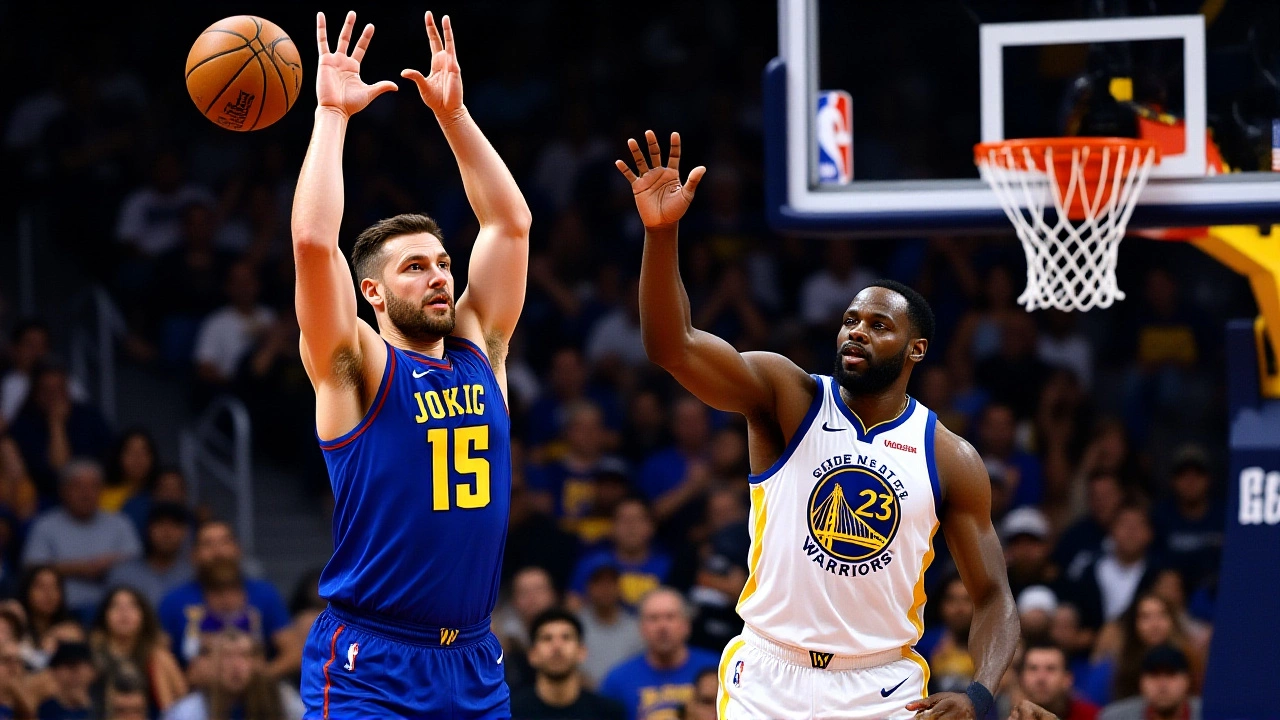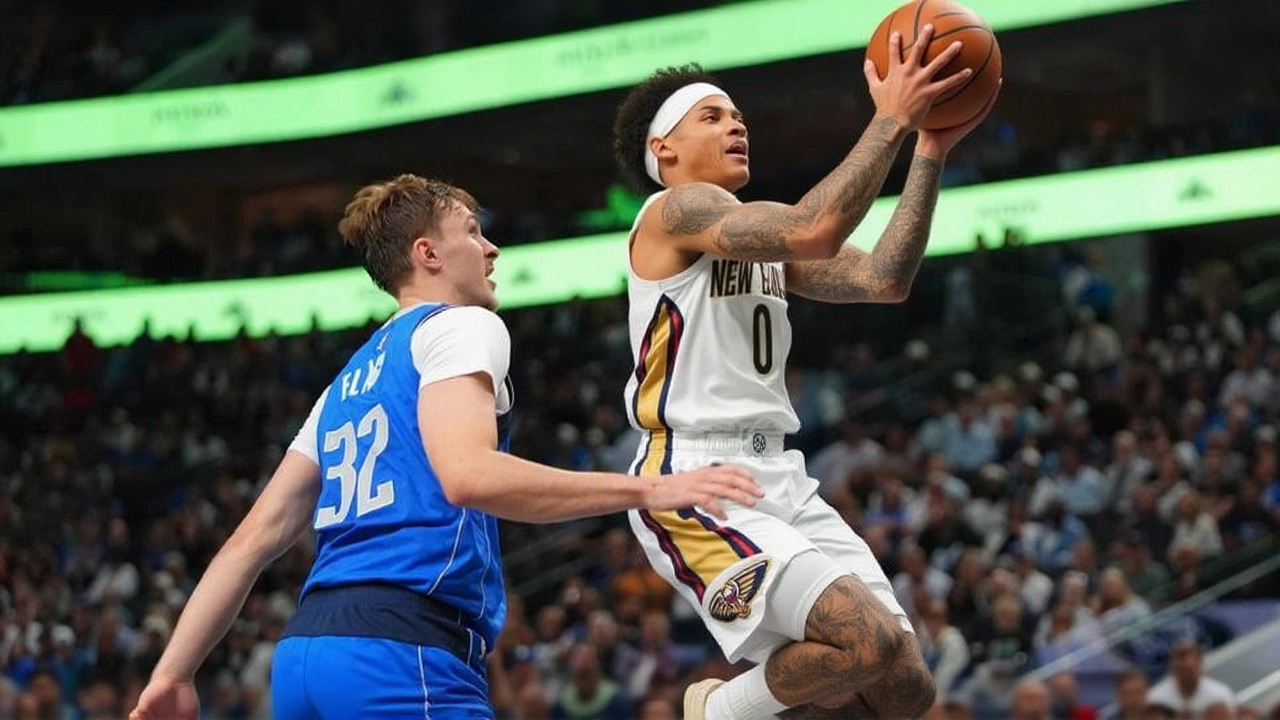Draymond Green admits he 'failed' Warriors by not fixing defensive collapse this season

When Draymond Green stepped to the podium after a crushing loss to the Denver Nuggets in early November 2025, he didn’t talk about missed shots or bad calls. He talked about himself. "I failed this team," he said, voice low but firm. "I didn’t fix what needed fixing. And that’s on me." The moment sent ripples through the Golden State Warriors locker room — not because it was surprising, but because it was so rare. The man who built this franchise’s identity as a defensive engine was now owning its unraveling.
The Defense That Cracked
It wasn’t one game. It was a pattern. The Golden State Warriors, once the NBA’s most feared defensive unit, now rank near the bottom of the league in opponent field goal percentage in the paint and second-chance points allowed. In the 2023-2024 season, they were 12th in points allowed per game. This year? They’ve slipped into the top 20 — and trending downward. The numbers aren’t flashy, but the eye test is brutal: guards slipping through rotations, big men caught out of position, and too many open threes that used to be unthinkable.
One sequence from a game against the Denver Nuggets at Ball Arena was dissected by Golden State of Mind: Moses Moody, the Warriors’ young shooting guard, ran a handoff from Green, then tried to use a rescreen to create space. But Jamal Murray, the Nuggets’ sharpshooting point guard, stayed glued. No slip. No hesitation. He contested the shot — and it clanked off the rim. Green had done everything right on paper. But the system broke down. And no one stepped in to fix it.
Leadership in the Mirror
Green has always been the soul of this team. The emotional barometer. The guy who screams, who points, who demands more. He’s the only Warrior to ever win Defensive Player of the Year while playing alongside Stephen Curry. But this season, something’s different. He’s quieter on the floor. Less animated. Less present in the huddles. And when he speaks, it’s not to rally — it’s to reckon.
"I’m not just a player anymore," Green told reporters after the Nuggets game. "I’m the guy who’s supposed to make this work. And when the defense crumbles, it’s because I didn’t hold people accountable. I didn’t push hard enough. I let it slide. That’s not leadership. That’s failure."
It’s a raw admission — the kind you rarely hear from a veteran captain. Most would blame injuries, fatigue, or the new system. Green didn’t. He looked in the mirror. And he didn’t like what he saw.
The Ripple Effect
The fallout isn’t just on the court. Coaches are quietly reworking defensive schemes. Front office staff are reviewing rotation minutes. Even Joe Lacob and Peter Guber, the owners of the Golden State Warriors, are said to have privately expressed concern — not about wins and losses, but about culture.
For the 18,064 fans who pack the Chase Center every night, the stakes feel higher than ever. This isn’t just about making the playoffs. It’s about preserving a legacy. The Warriors have spent a decade building an identity — one built on ball movement, smart defense, and relentless accountability. Right now, that identity is fraying.
What Comes Next?
Green hasn’t laid out a plan. No press conference. No bold promises. But sources close to the team say he’s already meeting with assistant coaches late at night, reviewing film of past defensive schemes that worked — the ones from 2017, 2022, even 2023. He’s asking younger players to hold him accountable too. "If I’m not doing my job," he told one teammate, "you tell me. Even if I’m mad."
That’s the kind of leadership that doesn’t make headlines. But it changes teams.
Still, time is running out. The regular season ends in April 2025. The playoffs loom. And if the Warriors can’t shore up their defense, their championship window — already narrowing — could slam shut for good.
Why This Matters Beyond the Court
Green’s admission isn’t just about basketball. It’s a lesson in accountability. In a world where athletes are quick to blame referees, teammates, or injuries, here’s a star saying: "I messed up. And I’m fixing it."
It’s rare. It’s real. And it’s exactly what sports — and society — need more of.
Frequently Asked Questions
Why is Draymond Green’s admission so significant?
Green is the emotional core and defensive leader of the Golden State Warriors, a two-time Defensive Player of the Year and the engine behind their championship culture. When he publicly admits failure, it signals a deeper systemic issue — not just poor stats, but a breakdown in accountability. His words carry weight because he’s the player who’s always demanded more from others; now he’s demanding more from himself.
How has the Warriors’ defense changed from last season to this one?
In the 2023-2024 season, the Warriors ranked 12th in points allowed per game. This season, they’ve slipped into the bottom half of the league, with noticeable drops in paint defense and opponent three-point shooting containment. While exact stats aren’t public, game film and analytics sites like Golden State of Mind show increased rotations breaking down, especially when the offense stagnates — a direct result of the team’s offensive inconsistency.
What role does Moses Moody play in this defensive struggle?
Moody is a key wing defender, but he’s still developing. In the sequence analyzed by Golden State of Mind, he struggled to shake Jamal Murray despite Green’s handoff and rescreen — highlighting how offensive inefficiency puts extra pressure on defenders. When the offense doesn’t create space, defenders like Moody are forced into one-on-one battles they’re not always equipped to win — exposing gaps in the system.
Is this failure tied to the Warriors’ offensive struggles?
Yes. The Warriors’ offense has been inconsistent this season, with low assist numbers and stalled possessions. When the ball stops moving, defenders get tired and lose communication. Green’s handoff and rescreen attempts are designed to create rhythm — but when they fail, the entire defensive structure becomes reactive instead of proactive. Offense isn’t just about scoring; it’s about setting the tempo for defense.
Could Draymond Green lose his leadership role?
Not if he follows through. Leadership isn’t about titles — it’s about action. Green’s admission has actually strengthened his credibility. But if no changes occur by mid-March, younger players may begin looking elsewhere for direction. The coaching staff has not publicly questioned his role, but internal pressure is mounting. His legacy hinges on whether he can restore the Warriors’ defensive identity before April.
What’s the timeline for fixing this?
The regular season ends in April 2025, and the Warriors are fighting for a top-6 seed to avoid the play-in tournament. There’s no official deadline, but sources say defensive adjustments must show up by late February. If the team can’t stabilize by then, the focus will shift to next season — and whether Green can still lead them into the next era.
